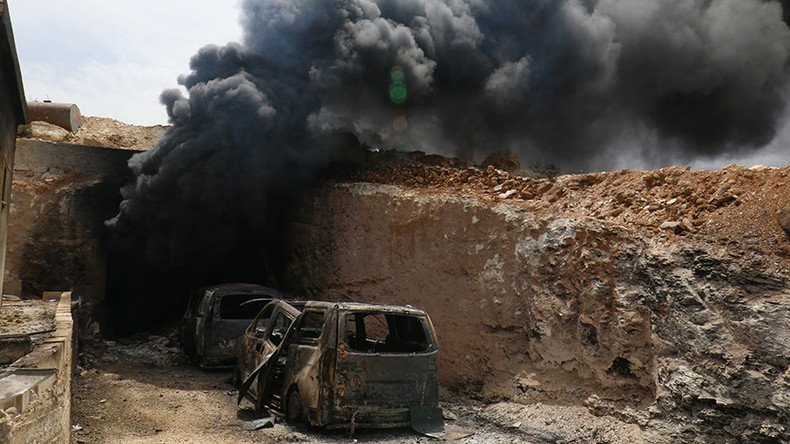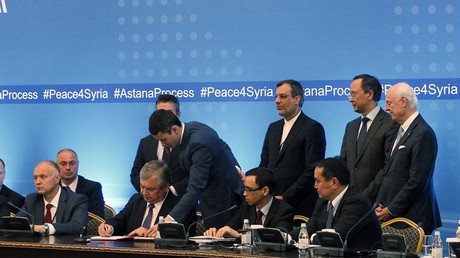US hopes Syria de-escalation agreement leads to reduced violence, political settlement - State Dept

The US State Department says it welcomes, with some reservations, the joint proposal by Russia, Turkey, and Iran to establish de-escalation zones in Syria, which it hopes will lead to reduced violence and an eventual peace settlement.
“The United States supports any effort that can genuinely de-escalate the violence in Syria, ensure unhindered humanitarian access, focus energies on the defeat of ISIS and other terrorists, and create the conditions for a credible political resolution of the conflict,” State Department spokesperson Heather Nauert said in a statement.
We look forward to continuing our dialogue with #Russia on efforts that can responsibly end the #Syria conflict.https://t.co/82b3LlrRYx
— Department of State (@StateDept) May 4, 2017
"We appreciate the efforts of Turkey and the Russian Federation to pursue this agreement and have encouraged the Syrian opposition to participate actively in the discussions despite the difficult conditions on the ground."
Nauert said that Washington expects Russia to ensure the Syrian government’s “compliance” in the agreement.
U.S. supports any effort that can genuinely de-escalate violence in #Syria, ensure unhindered humanitarian access.https://t.co/82b3LlrRYx
— Department of State (@StateDept) May 4, 2017
The statement also called upon Syrian opposition groups to live up to their side of the agreement and separate the moderate factions from extremist militants, including Hay’at Tahrir al-Sham, an alliance of jihadist groups including the al-Qaeda affiliate the al-Nusra Front.
“We look forward to continuing our dialogue with the Russian Federation on efforts to that can responsibly end the Syria conflict,” the statement said.
However, the United States, which did not take part in the de-escalation talks directly, had some reservations about the presence of Iran, its long term rival, as one of the guarantor parties.
“Iran’s activities in Syria have only contributed to the violence, not stopped it,” Nauert claimed.
Tehran supports the Syrian government of Bashar Assad, which was also criticized in the statement for its alleged “attacks on civilians”.
On Thursday, Russia, Iran and Turkey adopted a memorandum on the creation of four security zones in Syria during talks in the Kazakh capital of Astana. The de-escalation zones, initially proposed by Russia, are aimed at separating extremist groups, including Islamic State terrorists (IS, formerly ISIS/ISIL) and the Al-Nusra Front, from the moderate opposition.
Idlib, Latakia and Homs are among the designated safe zones, as well as parts of Aleppo, according to the Turkish Foreign Ministry. Under the memorandum, any fighting between government forces and the armed opposition will cease within the safe zones. Checkpoints and observation posts are to be positioned along the de-escalation lines within the safe zones, according to the document. They will provide for free movement of unarmed civilians and humanitarian access to the areas, under guarantor states’ control.
But the memorandum was not accepted by the Syrian opposition delegates, who said that the creation of de-escalation zones would threaten Syria’s territorial integrity. They also stated they will not sign anything while Iran remains among the guarantor states.













